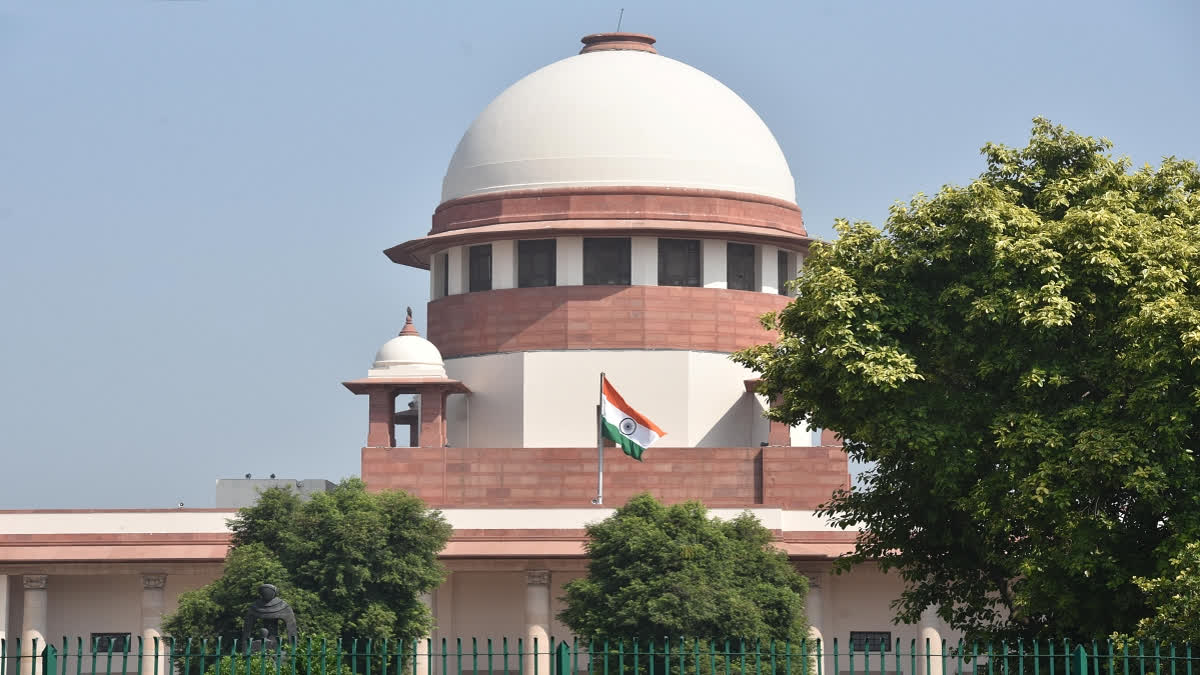New Delhi:The Supreme Court on Thursday ruled that states are constitutionally empowered to make sub-classifications within the Scheduled Castes, which form a socially heterogeneous class, for granting reservation and stressed that the fundamental right to equality guarantees "factual and not formal equality", and if different persons are not similarly situated, a classification is permissible.
A seven-judge constitution bench headed by Chief Justice D Y Chandrachud, by a majority of 6:1, set aside the apex court's five-judge bench verdict in the EV Chinnaiah vs State of Andhra Pradesh case which had held that no sub-classification of Scheduled Castes (SCs) can be allowed as they are a homogeneous class in themselves.
The six judgments, running into 565 pages, were penned on the contentious issue by the CJI, who wrote for himself and Justice Manoj Misra, and Justices BR Gavai, Vikram Nath, Pankaj Mithal, Satish Chandra Mishra and Bela M Trivedi. Except for Justice Trivedi, the other five judges concurred with the opinion of the CJI.
The CJI, in his opinion, dwelled upon the legal aspects to answer the core issue whether sub-classification of the scheduled castes is constitutionally permissible for the purposes of reservation. He clearly opined that the apex court in Indra Sawhney (1992) judgment never intended to limit the application of sub-classification to the other backward classes only. The CJI said Article 14 (right to equality) of the Constitution permits sub-classification of a class, which is not similarly situated for the purpose of the law.
He said if any class is not integrated it can be further classified and such sub-classification of a class would not be violative of Article 14 of the Constitution, so long persons in a class are not similarly situated.
The CJI said that there is no violation of Article 341(2) of the Constitution in sub-classification within the scheduled caste as by such sub-classification no caste is being included or excluded from the list of scheduled castes. Article 341(1) grants the President the power to notify castes, races or tribes which shall be deemed to be SCs for a state or a Union Territory.
The CJI said Article 14 employs two expressions – equality before the law and equal protection of the laws and both are different in content and sweep. "Equality before the law.... entails absence of special privileges for any individual within the territory. It does not mean that the same law should apply to everyone, but that the same law should apply to those who are similarly situated," he said.
He said in essence, the guarantee of equality entails that all persons in like circumstances must be treated alike and equality does not entail sameness, and the state is allowed to classify in a manner that is not discriminatory.
"The first issue that arises for the consideration of this Court is whether the principle of sub-classification per se violates Article 14. It is established precept that Article 14 guarantees factual and not formal equality. Thus, if persons are not similarly situated in reference to the purpose of the law, classification is permissible. The same logic of classification equally applies to sub-classification," said the CJI, in the 140-page judgment.
He said the law can further classify a class that is already created by law for a limited purpose if it is heterogeneous for another purpose and this court has in multiple judgments held that such classification within a class is valid under Article 14.
Article 16 (4) provides the State with the enabling power to make provisions for reservations in appointments or posts in favour of "any backward class of citizens". The provision, unlike Article 15(4), does not distinguish amongst the Scheduled Castes, Scheduled Tribes, and other Socially and Educationally Backward Classes.
"The castes or groups within the Scheduled Castes form an integrated class for the limited purpose of constitutional identification. They do not form an integrated class for any other purpose. We have also established through historical and empirical evidence that the Scheduled Castes notified by the President under Article 341 are a heterogenous class where groups within the class suffer from varying degrees of social backwardness….," said the CJI.
